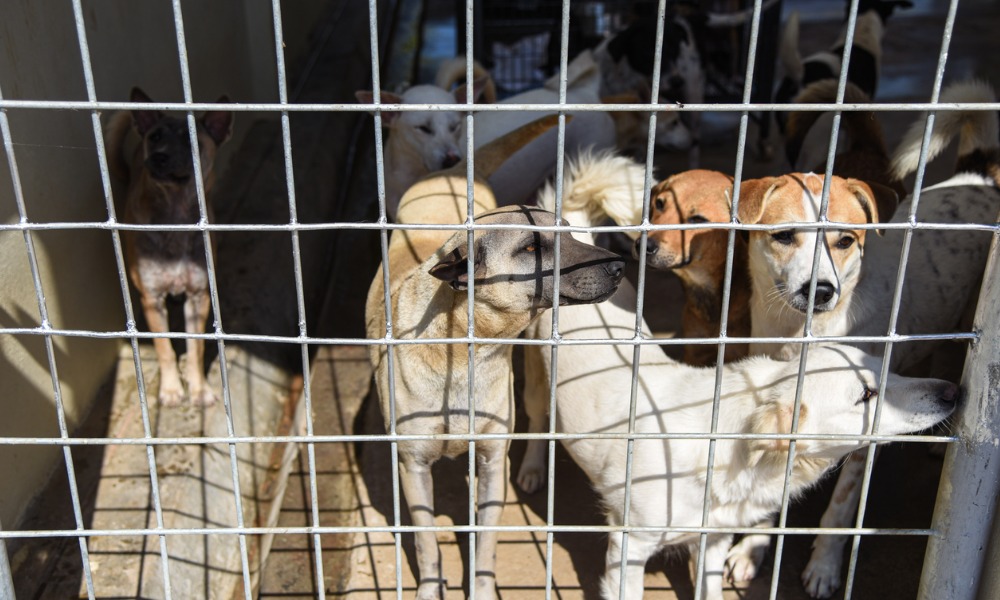
New policy to ban entry of commercial dogs from over 100 countries at high risk for dog rabies

Animal Justice has weighed in on a new federal policy that will ban the importation of dogs from several countries over rabies concerns.
Beginning September 28, the Canadian Food Inspection Agency (CFIA) will prohibit the entry of commercial dogs from more than 100 countries classified as high risk for dog rabies. Commercial dogs include dogs for resale, adoption, fostering, breeding, show or exhibition, research, or any other purposes.
According to the CFIA, dog rabies causes approximately 59,000 deaths worldwide yearly. Therefore, importing commercial dogs from countries at high risk for dog rabies poses a “serious public health risk” to Canadians.
“Several other countries also have strict import conditions to reduce the risk of importing dogs infected with dog rabies and other diseases,” the CFIA said. “The CFIA continues to work with Public Health Agency of Canada, Canada Border Services Agency, and other federal government partners to implement this measure.”
In its released statement, Animal Justice raised concerns over the new policy, noting that numerous Canadian dog rescue organizations currently work in those countries to rescue thousands of dogs, organizing veterinary care, air transport to Canada, foster homes, and adoption opportunities. It also stated that these organizations were not consulted on the “abrupt” policy shift, and many feared that the new policy would force them to shut down their operations.
“Many Canadians are eager to adopt dogs, but this blanket ban will condemn thousands of dogs to languish in the streets or be killed in overcrowded shelters instead of finding loving homes in Canada,” said Animal Justice executive director Camille Labchuk. “And with far fewer rescued dogs available for adoption in Canada, our puppy mill problem will get worse − backyard breeders will pump out as many puppies as possible for profit, born into filthy, cramped cages.”
Moreover, Animal Justice noticed that the new policy provides no exemptions for disasters or rescues operating in war-torn countries, such as Ukraine and Afghanistan. It also argued that dog rabies in high risk-countries is preventable with appropriate vaccinations and can be addressed through testing, quarantine, and other measures.
“Animal Justice is calling on the CFIA to do what it should have done in the first place and ensure dog rescue from these countries can continue with the appropriate safeguards,” Labchuk said. “At the very least, there must be exceptions for humanitarian reasons, such as conflict and disasters.”
Animal Justice said it had launched an online petition calling for the CFIA to reconsider its decision and allow adoptable dogs to enter Canada.